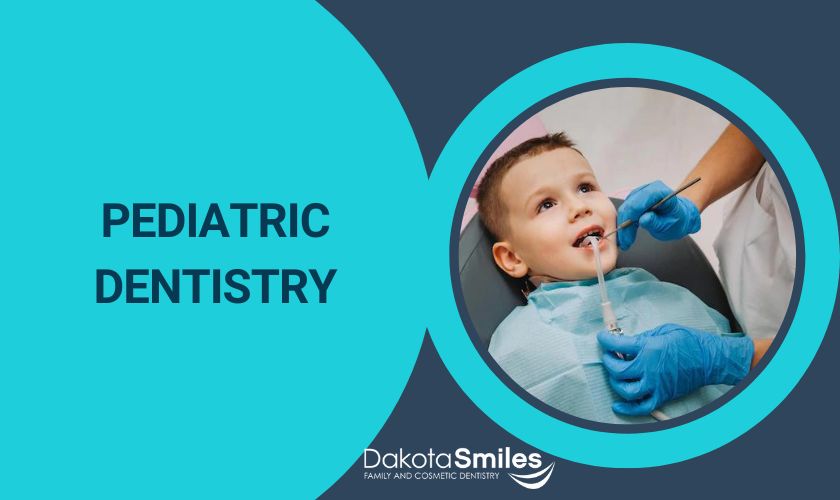Pediatric Dentistry is a specialized form of dentistry that focuses on the oral health care needs of infants, children, and adolescents. Pediatric dental work involves ensuring children have clean and healthy teeth and protecting their gums from damage and cavities. Pediatric dentists are specially trained to handle the unique dental needs of young patients, which is why they are essential for any family with young children. This article will explore how Pediatric Dentistry works and what parents should expect when they take their child to see a Pediatric Dentist.
Pediatric Dentistry is important in caring for a child’s overall health. A Pediatric Dentist is specially trained in the dental care needs of children and adolescents. Pediatric Dentistry focuses on preventive care, diagnosing and treating dental conditions before they become more serious, and educating families about oral hygiene. Pediatric dentists also provide treatments such as fillings, crowns, and bridges. Pediatric dentists are skilled at helping children feel comfortable and relaxed during their visits to the dentist.
What Happens During a Pediatric Dental Appointment?
Pediatric dental appointments have several components to ensure your child’s teeth stay healthy. At the beginning of the appointment, the pediatric dentist will review your child’s medical history and ask questions about any previous dental care received or illnesses experienced. Pediatric dentists will also perform a visual and hands-on examination, checking for any signs of tooth decay or gum disease. X-rays may also be taken to identify any problems beneath the surface of the teeth. Once the dental checkup is complete, your Pediatric Dentist can recommend treatments such as fluoride rinses, sealants, and fillings if needed.
Cleaning and Polish
During a Pediatric Dental appointment, your child’s teeth will be professionally cleaned with special instruments designed specifically for children’s teeth. This process removes plaque and tartar buildup from difficult areas that are hard to clean at home. The Pediatric Dentist may also polish your child’s teeth with a special paste that helps protect against cavities.
Fluoride Treatments
Fluoride is a natural mineral that can help strengthen tooth enamel and reduce the risk of cavities. Pediatric dentists may recommend fluoride treatments for children with weak or damaged teeth to protect them from decay further. This treatment usually takes only a few minutes and involves applying a mineral solution to your child’s teeth.
Oral Hygiene Instruction
Pediatric Dentists are also trained to provide education about proper oral hygiene techniques such as brushing, flossing, and healthy eating habits. This information can benefit parents trying to get their children into good dental care habits from an early age. Pediatric dentists can provide tips and tricks for making brushing and flossing fun so that children will want to stick with healthy habits.
Pediatric Dental Procedures
In addition to preventive care, Pediatric Dentists are trained to perform necessary restorative dental procedures such as fillings, crowns, and bridges. Pediatric Dentists use special techniques and equipment designed especially for young patients to ensure their comfort during these treatments. Pediatric dentists are experts at helping children feel relaxed while they get the care they need.
Fillings
If a child has cavities, Pediatric Dentists may recommend treatment with fillings. Pediatric Dentists use unique materials specifically designed for children’s teeth that are safe and effective in restoring teeth to their original shape and function. If appropriate, pediatric dentists can also discuss other options, such as sealants or composite resins.
Crowns
If a child has a badly decayed or damaged tooth, Pediatric Dentists may recommend placing a crown on the affected tooth. Pediatric Dentists use unique child-sized crowns that fit comfortably in the mouth and help protect against further damage. Pediatric dentists will explain how long the crown should remain in place before it needs to be replaced, as well as any follow-up care needed to ensure optimal dental health.
Bridges
If a Pediatric Dentist finds that more than one tooth is damaged or missing, they may recommend a bridge to fill the gap. Pediatric dentists use unique materials and techniques designed specifically for children’s mouths to ensure their comfort and safety during this procedure. Pediatric dentists can also explain how long the bridge should remain in place before it needs to be replaced and any follow-up care needed to ensure optimal dental health.
Conclusion
Pediatric Dentistry is an essential part of maintaining good oral hygiene for children. Pediatric Dentists are skilled at providing preventive care, such as cleanings and fluoride treatments, as well as therapeutic procedures like fillings, crowns, and bridges. Pediatric Dentists are also experienced in providing education about proper oral hygiene techniques to help children develop healthy habits that will last a lifetime.
FAQs
1: How often should my child see a Pediatric Dentist?
Pediatric Dentists recommend that children visit for routine exams every six months. This allows Pediatric Dentists to monitor your child’s dental health and provide early intervention if needed.
2: What can Pediatric Dentistry do to prevent cavities?
Pediatric Dentistry focuses on preventive care such as cleanings and fluoride treatments and teaching children good brushing and flossing habits. These measures can go a long way in helping to prevent cavities and maintain your child’s oral health.
3: Will Pediatric Dentists treat toothaches?
Yes, Pediatric Dentists are qualified to diagnose and treat any dental issues that may be causing your child’s pain. Pediatric Dentists will work with you to ensure your child receives the best treatment.

